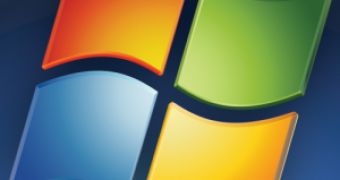Although it has downplayed Windows Vista Service Pack 1 as just a standard refresh, Microsoft in fact plans to combine 32-bit and 64-bit versions of its latest operating system. The Redmond Company is under an all out Windows Omerta, gagging all details related to the first service pack for Windows Vista, to Windows Seven or to Windows Fiji. But crumbs do fall from Microsoft's table, and this piece of news via WindowsConnected is just such an example. Much in the same manner in which a single DVD contains all the editions of Windows Vista, Microsoft will also add both the 32-bit and the 64-bit versions to a single installer. This alteration is cooking now in the Redmond Company's laboratories, and will be made available to consumers following the release of the first service pack for Windows Vista, scheduled for the end of 2007.
Unlike Apple, Microsoft cannot dictate the direction of hardware development and adoption. Instead, the Redmond Company has to play to the tune of both 32-bit and 64-bit architectures with the Windows operating system. While Windows Server 2008 will be the last server operating system for Microsoft, Windows Vista still supports both 32-bit and 63-bit platforms. Windows senior product manager Alex Heaton revealed that the word is still out on whether Windows Seven, the successor of Windows Vista will be exclusively 64-bit or not.
Marrying 32-bit and 64-bit versions of Windows Vista on a single installer, Microsoft will be one step closer to Apple, as the Cupertino-based company will offer only 64-bit Leopard. The initiative is also designed to resolve the gap between 32-bit and 64-bit Vista. Microsoft does not currently permit upgrading or switching between x86 and x64 versions of the operating system. This will no longer be an issue after SP1. In addition, the move delivers a clue for the Redmond Company's plans with Windows Seven. If Microsoft does not scrap 32-bit with their future Windows client, then it could include both x86 and x64 on a single installer. Of course Microsoft has not confirmed this aspect.

 14 DAY TRIAL //
14 DAY TRIAL //